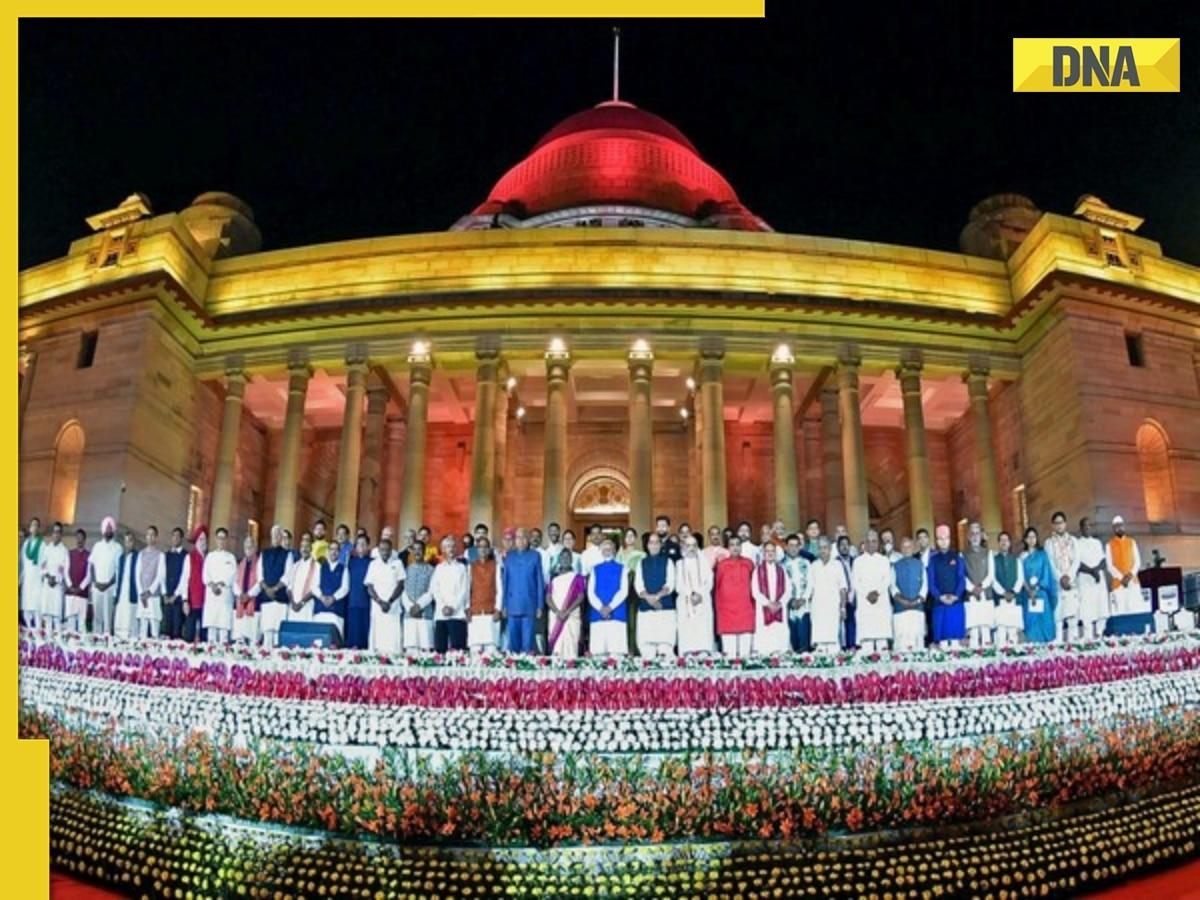
In a grand ceremony at the Rashtrapati Bhavan on June 9, President Droupadi Murmu officially appointed Narendra Modi as the Prime Minister of India for a third consecutive term. Joining him in this significant event were 30 new cabinet ministers, 36 Ministers of State (MoS), and five MoS with independent charge, all from the Bharatiya Janata Party (BJP) and its allied parties under the National Democratic Alliance (NDA) banner.
The event saw the President administering the oaths of office and secrecy to the newly appointed Council of Ministers. The ceremony was imbued with an air of formality and grandeur, capturing the richness and diversity of India’s democratic ethos.
“The President of India has appointed Shri Narendra Damodardas Modi as the Prime Minister of India. Further, as advised by the Prime Minister, the President has appointed the following as members of the Council of Ministers,” an official communiqué stated.
Several high-profile leaders from the BJP were sworn in as Cabinet Ministers. Among those who took the oath were Raj Nath Singh, Amit Shah, Nitin Jairam Gadkari, Jagat Prakash Nadda, Shivraj Singh Chouhan, Nirmala Sitharaman, Subrahmanyam Jaishankar, Manohar Lal, HD Kumaraswamy, Piyush Goyal, Dharmendra Pradhan, Jitan Ram Manjhi, Rajiv Ranjan Singh alias Lalan Singh, Sarbananda Sonowal, Virendra Kumar, Kinjarapu Rammohan Naidu, Pralhad Joshi, Jual Oram, Giriraj Singh, Ashwini Vaishnaw, Jyotiraditya M. Scindia, Bhupender Yadav, Gajendra Singh Shekhawat, Annpurna Devi, Kiren Rijiju, Hardeep Singh Puri, Mansukh Mandaviya, G Kishan Reddy, Chirag Paswan, and C R Patil.
Additionally, five leaders were elevated as Ministers of State with independent charge. These leaders are Rao Inderjit Singh, Jitendra Singh, Arjun Ram Meghwal, Jadhav Prataprao Ganpatrao, and Jayant Chaudhary.
The MoS lineup includes Jitin Prasada, Shripad Yesso Naik, Pankaj Chaudhary, Krishan Pal, Ramdas Athawale, Ram Nath Thakur, Nityanand Rai, Anupriya Patel, V. Somanna, Chandra Sekhar Pemmasani, SP Singh Baghel, Sushri Sobha Karandlaje, Kirtivardhan Singh, BL Verma, Shantanu Thakur, Suresh Gopi, L Murugan, Ajay Tamta, Bandi Sanjay Kumar, Kamlesh Paswan, Bhagirath Choudhary, Satish Chandra Dubey, Sanjay Seth, Ravneet Singh, Durgadas Uikey, Raksha Nikhil Khadse, Sukanta Majumdar, Savitri Thakur, Tokhan Sahu, Raj Bhushan Choudhary, Bhupathi Raju Srinivasa Varma, Harsh Malhotra, Nimuben Jayantibhai Bambhaniya, Murlidhar Mohol, George Kurian, and Pabitra Margherita.
This ceremonial event was a vivid display of India’s cultural vibrancy. The attending dignitaries included senior political leaders, diplomats, leading industrialists, Bollywood actors, and other prominent personalities. Notably, several foreign leaders also graced the occasion, underscoring India’s growing influence on the global stage.
. Attendees included Nepal’s Prime Minister Pushpa Kamal Dahal ‘Prachanda,’ Sri Lanka’s President Ranil Wickremesinghe, Bhutan’s Prime Minister Tshering Tobgay, Maldives’ President Mohamed Muizzu, Mauritius’ Prime Minister Pravind Jugnauth, Seychelles’ Vice President Ahmed Afif, and Bangladesh’s Prime Minister Sheikh Hasina.
PM Modi’s oath-taking ceremonies have historically featured significant foreign policy outreaches. His first term in 2014 saw the presence of all Heads of State of SAARC nations. In 2019, leaders of BIMSTEC countries were invited at the start of his second term.
The new council of ministers is a blend of youth and experience, reflecting the strategic vision of PM Modi’s leadership. Veteran BJP leaders like Rajnath Singh, Amit Shah, Nitin Gadkari, Nirmala Sitharaman, and S Jaishankar maintain a stronghold, with their seasoned expertise and experience promising to guide the government’s initiatives effectively.
Simultaneously, several young leaders and first-time members of parliament have been inducted, showcasing an infusion of fresh energy into the cabinet. Among them are actor-turned-politician Suresh Gopi, the first BJP MP from Kerala, and Harsh Malhotra, who won the Lok Sabha polls from East Delhi.
The elevation of BJP President JP Nadda as a union minister indicates a strategic reshuffle within the party’s leadership, hinting at possible future transitions and expansions.
In this new term, the BJP-led NDA government, bolstered by their third consecutive victory in the Lok Sabha polls, has formed a robust and diversified team. Out of the 293 NDA seats in the Lok Sabha, the BJP alone secured 240 seats. This significant mandate reflects the electorate’s continued confidence in PM Modi’s vision and leadership.
Most of the MPs took their oaths in Hindi, while a few preferred English. The ceremony was completed with utmost decorum and was immediately followed by a scheduled Union Cabinet meeting at 5 pm on the same day.
This remarkable event marked the beginning of another chapter in India’s political journey, under the leadership of Prime Minister Narendra Modi and his new council of ministers, reflecting a synthesis of continuity and change aimed at steering the nation toward a prosperous future.












